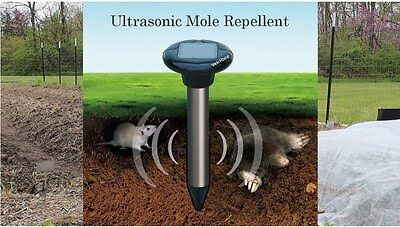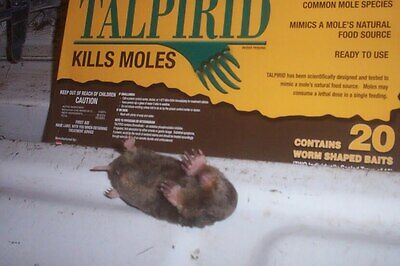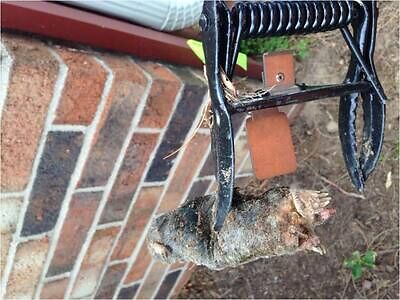Call us: 571-297-3639
Welcome to Fairfax County Mole Control! We are a wildlife control company which services Fairfax city County, Virginia. We specialize in the removal of moles - the animals - and other unwanted animals you may have on your property. Moles love to dig tunnels, resulting in large molehills and tunnels all over your yard. While these aren't exactly dangerous, they can damage your landscape and backyard and cause a nuisance. To deal with moles, we use professional trapping methods and make sure to prevent moles from overrunning your property again. Call us 24/7 at 571-297-3639 to schedule an appointment the same day or the next. We aren't considered Fairfax County's best animal removal company for nothing! You can check out our Fairfax County mole removal prices. Some of the services we offer include:
- 100% Mole Removal Via Trapping
- Full Property, Garden, & Yard Inspections
- Prevention and Lawn Treatments
- Poison-Free Mole Control
- Effective Mole Trapping Methods
- Repair of Lawn and Sod, Mole Hill Removal
Some Educational Articles I Wrote:
CALL US ANYTIME AT 571-297-3639

We are experts in mole control and are not your typical Fairfax County, Virginia pest control or exterminator company. First, we do not use poisons or the majority of repellents, since they do not work. Moles are difficult to remove and can only really be completely removed from your yard with mole traps, a process we have practiced and perfected over the years. In addition, if a mother mole has babies, we will make sure to remove her pups by hand before dealing with the mother mole. We are not a typical Fairfax County mole exterminator company. We completely solve your mole problem by taking these steps:
- Inspect the entire property grounds - lawn, yard, garden, etc.
- Set several pro traps in mole tunnels - the correct and safe way!
- Remove all moles as they are caught and monitor for activity
- Once there is no more activity and no more moles caught, we're done
- When needed, fill in tunnels and seal with underground fencing
What Prices Do We Charge?
Every wildlife situation is different: How many moles? Size of lawn? Do you need trapping, prevention, repairs? Call us and we can give pricing for your specific situation.
Fairfax County mole pest control animal tip: About Moles: Appearance, biology, habitat
Moles are one of those rare, especially annoying pests that are rarely seen, but their damage is often unmistakable so that you know they're around. Those lovely little piles of upturned earth strewn about a lawn or field let you know a burrower has decided to turn the area into a minefield are a sure sign of the alluvial menace.
Since moles are so elusive, some people don't know a lot of them. Knowing is half the battle, as the saying goes, and knowledge about moles can help fight them off your lawn and keep the soil relatively even.
Appearance
At first glance, moles tend to resemble an overstuffed mouse. They are usually around four or five inches in length. They have large, wide, paddle-like feet for digging, dark grey fur in most cases, and a narrow snout, except for star-nosed moles. There are 42 species of moles in all, so their appearance can vary a bit from species to species. Still, an elongated snout, wide feet, and fur are consistent for the various species.
Biology
Moles are not actually blind, but their eyesight is incredibly poor and heavily reliant on movement. Like almost all mammals they give birth to live young and breed in a similar manner to burrowing rodents. Except for mating times, moles live solitary lives, and males will fight over territory if they cross paths. Most moles eat earthworms, and in fact produce a toxin that can paralyze them. Instead of eating them right away, it's pretty common for moles to capture worms and store them for later.
Habitat
Moles are found everywhere except Antarctica and South America. Otherwise, they're not too picky. As long as there is loose soil to tunnel through and worms to eat, they can live there. Woodlands, grasslands, sandy areas with the soil beneath, and, of course, urban and suburban environments can all house moles. As long as they're not tearing up your garden or front lawn, they tend to not be a bother for anyone. It's when they start messing with your property that they get annoying.
As a pest, moles are pretty much harmless themselves. They don't really spread disease, they can't really bite anyone, and in fact, you almost never see the moles themselves. It's the damage caused by their burrowing that's the problem. Knowing how they live and what they eat is a good step towards knowing how to keep them at bay.

Copyright 2021 - pestmole.com - 571-297-3639
• Fairfax County, VA Animal Mole Control


